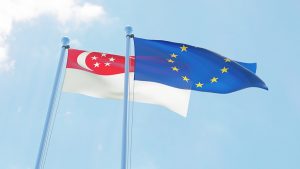EU-Singapore Free Trade Agreement Signed
The European Parliament has now approved the free trade pact between the European Union (EU) and the Republic of Singapore – the EU-Singapore Free Trade Agreement (EUSFTA). The trade pact signals both sides’ strong commitment to free trade at a time of increasing protectionism and is also seen as a prelude to a future FTA between the EU and the Association of Southeast Asian Nations (ASEAN).
Brunei’s Investment Outlook for 2019
Brunei’s government has in recent times sought to diversify the country’s economy by reducing its reliance on its hydrocarbon exports and focusing on industries such as information and communication technology and halal manufacturing. Read more about the country’s latest FDI trends and outlook for 2019 in our latest article.
Laos’ Investment Outlook for 2019
In recent years, Laos’ energy sector has experienced massive investments largely due to the country’s natural hydropower resources. Read our latest article to understand Laos’ latest FDI trends and outlook for 2019.
Thailand’s Investment Outlook for 2019
Thailand serves as a gateway to one of the world’s most dynamic economic regions. Read more about the country’s latest FDI trends and outlook for 2019 in our latest article.
Myanmar’s Investment Outlook for 2019
A large and cheap workforce, natural resources and generally low production costs make Myanmar a perfect destination for foreign investment. Read our latest article to understand Myanmar’s latest FDI trends and outlook for 2019.
The Philippines’ Federal Shift and What it Means for Business
The Philippines is moving towards a federal constitution. Read our latest article to know what it means for business.
Singapore’s Investment Outlook for 2019
Ranked for 12 consecutive years in the top three countries in the World Bank’s (WB) Ease of Doing Business index, Singapore is one of the most attractive places for businesses worldwide. Read more about Singapore’s latest FDI trends and outlook for 2019 in our latest article.
The Asia Reassurance Initiative Act and ASEAN
Read our latest article to know more about the US Asia Reassurance Initiative Act and what it means for ASEAN.
Indonesia’s Investment Outlook for 2019
Steady investment flows have allowed Indonesia’s economy to expand at a rapid pace. Read more about Indonesia’s latest FDI trends and outlook for 2019 in our latest article.
Import Procedures in ASEAN
In this article, we outline the import procedures in member states of ASEAN.



















